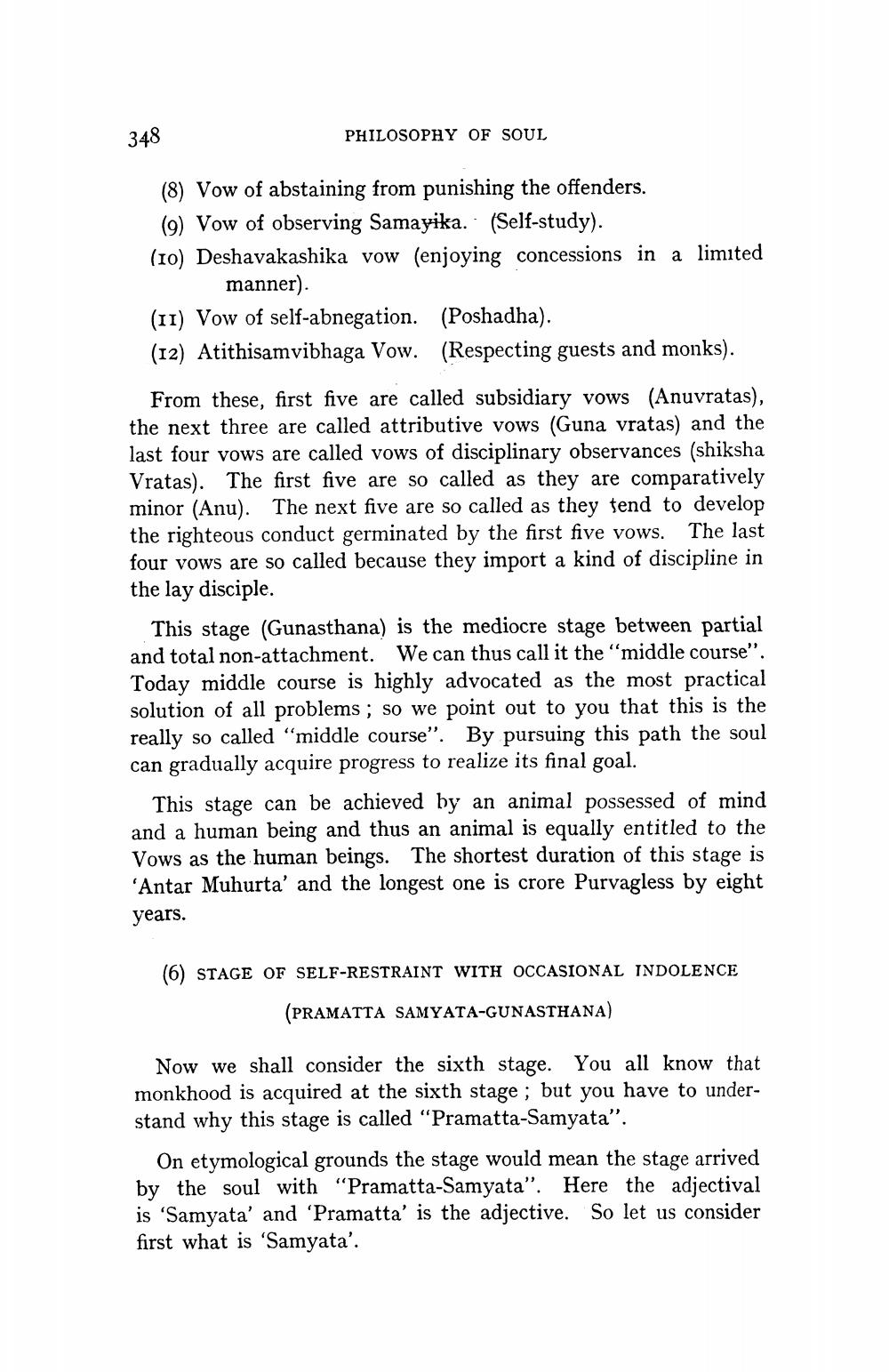________________
348
PHILOSOPHY OF SOUL
(8) Vow of abstaining from punishing the offenders. (9) Vow of observing Samayika. (Self-study). (10) Deshavakashika vow (enjoying concessions in a limited
manner). (11) Vow of self-abnegation. (Poshadha). (12) Atithisamvibhaga Vow. (Respecting guests and monks).
From these, first five are called subsidiary vows (Anuvratas), the next three are called attributive vows (Guna vratas) and the last four vows are called vows of disciplinary observances (shiksha Vratas). The first five are so called as they are comparatively minor (Anu). The next five are so called as they tend to develop the righteous conduct germinated by the first five vows. The last four vows are so called because they import a kind of discipline in the lay disciple.
This stage (Gunasthana) is the mediocre stage between partial and total non-attachment. We can thus call it the middle course". Today middle course is highly advocated as the most practical solution of all problems; so we point out to you that this is the really so called “middle course”. By pursuing this path the soul can gradually acquire progress to realize its final goal.
This stage can be achieved by an animal possessed of mind and a human being and thus an animal is equally entitled to the Vows as the human beings. The shortest duration of this stage is 'Antar Muhurta' and the longest one is crore Purvagless by eight years.
(6) STAGE OF SELF-RESTRAINT WITH OCCASIONAL INDOLENCE
(PRAMATTA SAMYATA-GUNASTHANA)
Now we shall consider the sixth stage. You all know that monkhood is acquired at the sixth stage ; but you have to understand why this stage is called "Pramatta-Samyata”.
On etymological grounds the stage would mean the stage arrived by the soul with "Pramatta-Samyata". Here the adjectival is 'Samyata' and 'Pramatta' is the adjective. So let us consider first what is 'Samyata'.




